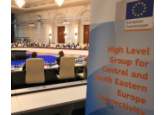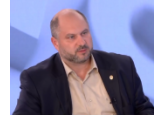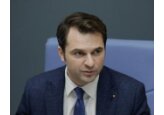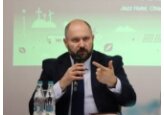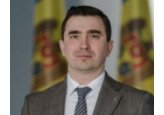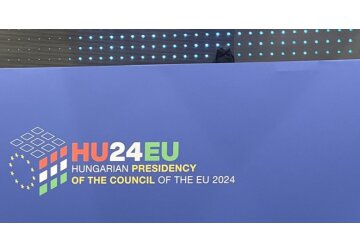
Vestmoldtransgaz along with other national GTS operators of CESEC countries signed a memorandum of agreement on harmonization of gas quality requirements at interconnection points in the region
This document was signed on October 29 in Budapest by the gas transmission system operators belonging to the CESEC (Central and South Eastern Europe Energy Connectivity) initiative within the framework of the meeting of the Central and South Eastern Europe High Level Group held there. Besides Vestmoldtransgaz, this memorandum was signed by: “Operator of GTS of Ukraine” (OGTSU), Bulgartransgaz (operator of GTS of Bulgaria), DESFA (Greece), FGSZ (Hungary), ICGB (operator of Greece-Bulgaria interconnector), Nomagas (North Macedonia), PLINACRO (Croatia), PLINOVODI (Slovenia), Transgaz (Romania). As noted, to make the region more open to supply diversification, the companies should not only build new routes, but also ensure compatibility of natural gas quality requirements at all interconnection points. As the memorandum notes, Central and Southeastern Europe have historically depended on imports of Russian natural gas, the physical and chemical characteristics of which determine the quality requirements for gas along the respective routes, both at the national level and at interconnection points. The compatibility and market integration of gas systems in the CESEC area requires further efforts in the context of supply diversification and the phase-out of Russian gas, which is also foreseen in the RePower EU plan. Diversification of supply and the development of cross-border trade require GTS operators to adapt requirements to take into account the different quality of natural gas from different sources. Since 2022, the GTS operators belonging to the CESEC initiative and the European Commission have held a number of meetings, workshops and other discussions on harmonization of gas quality in Central and South-Eastern Europe in order to remove artificial barriers to gas transportation. The results of the active cooperation of the above-mentioned stakeholders became the basis for signing a memorandum to coordinate actions aimed at finding a generally acceptable regional solution to harmonize gas quality requirements within an agreed timeframe. // 29.10.2024 - InfoMarket


